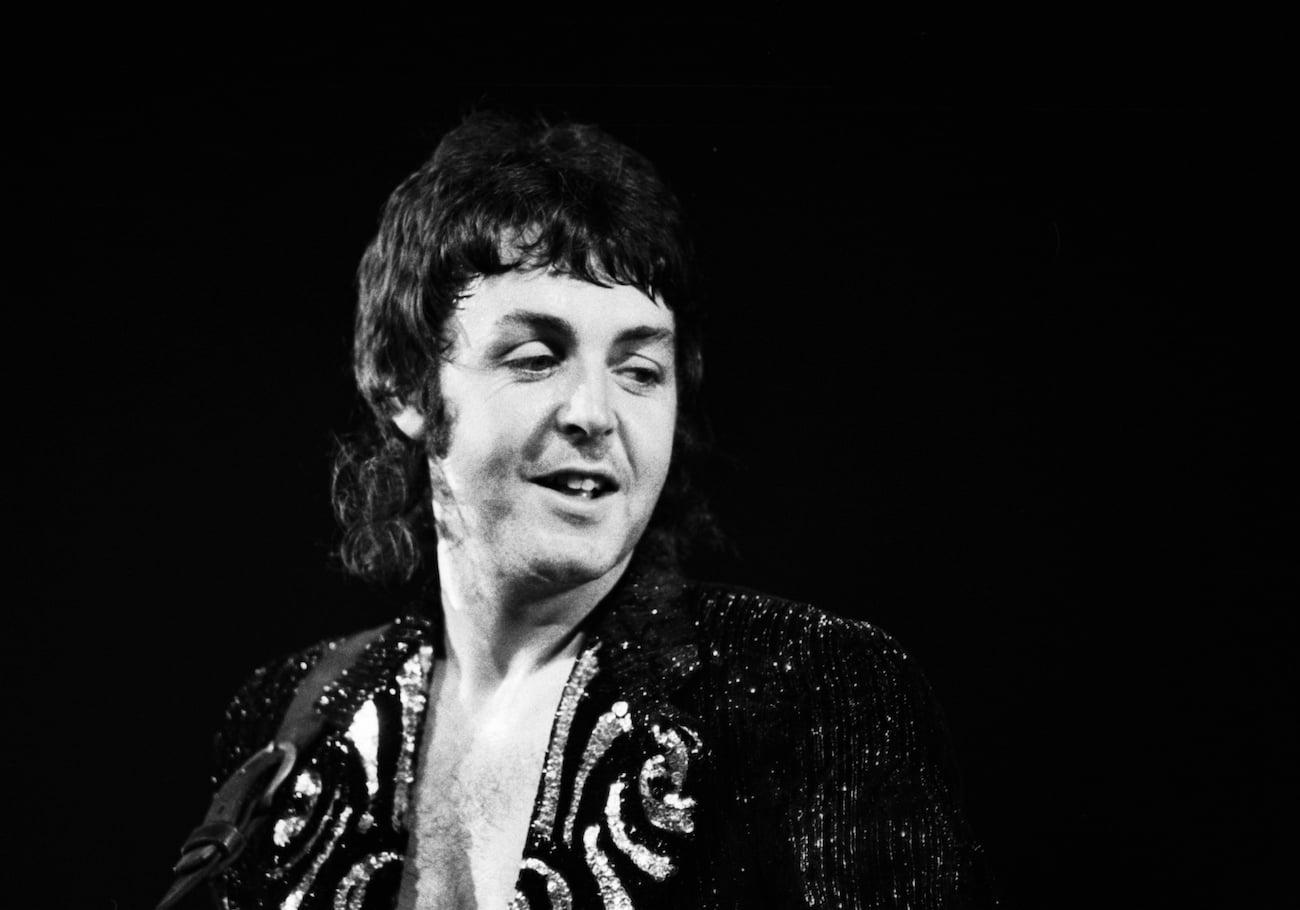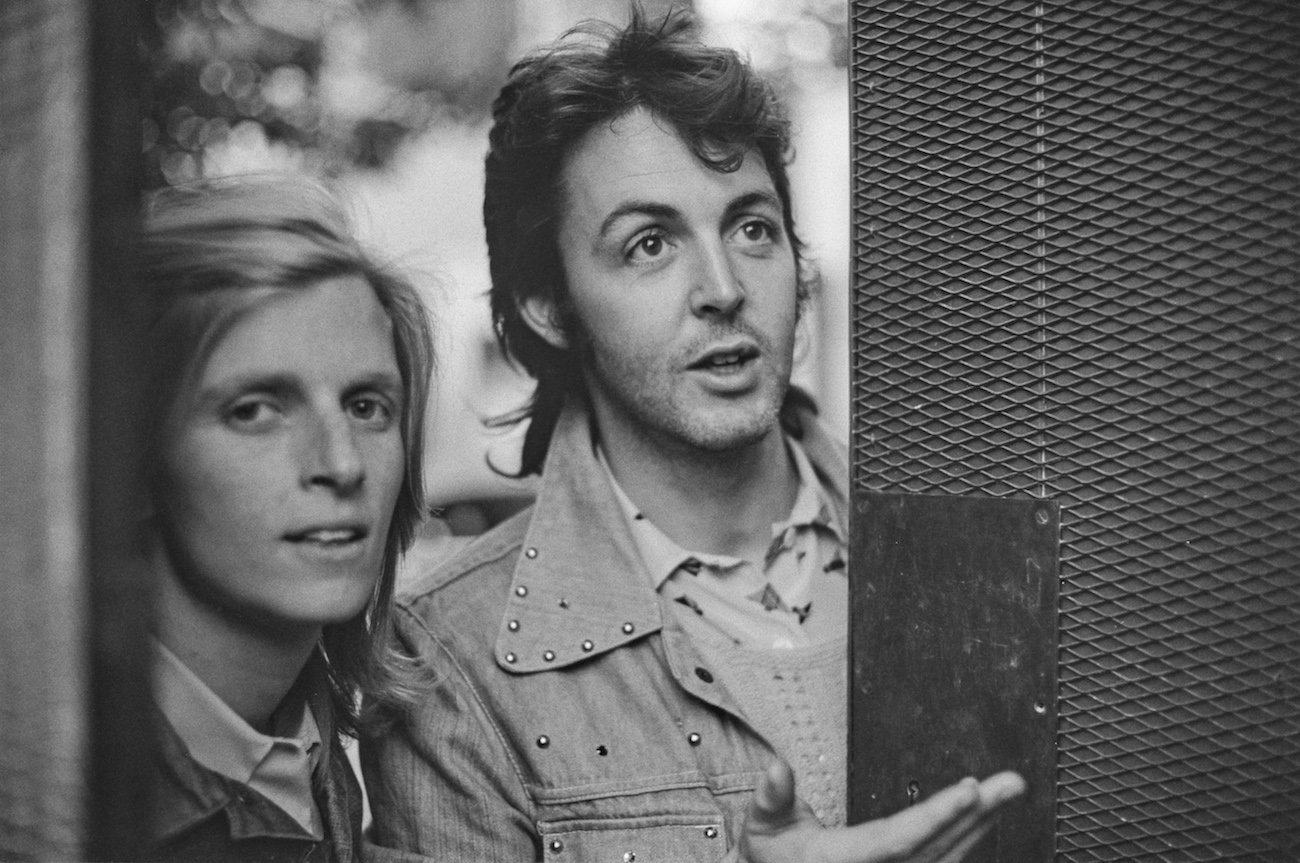
The BBC Banned a Paul McCartney Song That Went No. 1 in Ireland
The BBC banned a Paul McCartney song, but that didn’t stop it from becoming a hit in Ireland. The former Beatle’s record company tried to warn him that the BBC would ban “Give Ireland Back to the Irish,” but he felt morally obligated to release it.

Paul McCartney can trace his roots back to Ireland, so Bloody Sunday struck a chord
In The Lyrics: 1956 to the Present, Paul wrote that both his maternal and paternal grandfathers came from Ireland. His mother’s father, Owen Mohan, was from Tullynamalra in County Monaghan. Eventually, he moved to Liverpool and started work as a coalman. The family was Catholic.
Paul isn’t sure where his paternal grandfather was born in Ireland, but he does know that that side of his family was Protestant.
When Paul and his brother Michael were born, their parents, Jim and Mary, baptized them Roman Catholic. Mary insisted. However, the couple raised their sons nondenominational. “So, our household represented in microcosm the Irish political and religious divide,” Paul wrote.
In The Beatles Anthology, Paul wrote that he developed his religious philosophy at the pierhead. He’d hear the Catholics and Protestants arguing and claiming their sector of Christianity was better. “They couldn’t get it together, even though they were both Christians,” he wrote.
On Jan. 30, 1972, British soldiers opened fire on a peaceful protest in Derry, killing 14 people. The event became known as Bloody Sunday.
Paul was in New York. He’d met with John Lennon the day before. Ironically, Paul wrote, “It was a meeting at which we more or less agreed to stop sniping at each other.” So while the former bandmates agreed to a cease-fire, ending their feud and diss-track battle, British soldiers aggravated an already tense and bloody war.
As someone with Irish roots, Bloody Sunday put Paul in an awkward position.
Paul McCartney recorded ‘Give Ireland Back to the Irish,’ but his record company warned him against it
Bloody Sunday was “deeply troubling” for Paul. He explained, “It looked as if our army boys had acted indiscriminately and fired on innocent people. There was immediately a cover-up, claiming that the protesters weren’t innocent but had rifles…
“So, I was shocked by the idea that our soldiers had perpetrated this horror because up till that point, I had thought our boys were all great.”
The tragedy compelled Paul to write a protest song, something he’s always tried to avoid.
“Then I imagined Irish soldiers on the streets of Liverpool when I was growing up, telling me I couldn’t go here or I couldn’t go there – ‘Tell me how would you like it / If on your way to work / You were stopped by Irish soldiers?'”
“The idea of armed soldiers stopping me from going down the street seemed so wrong to me that, even though I wasn’t a writer of protest songs, I just felt I had to say something about this.”
It wasn’t the best idea, but the former Beatle felt he had to do something. Paul recorded “Give Ireland Back to the Irish” and sent it to EMI. Immediately, Sir Joseph Lockwood, friend and head of EMI, called.
Lockwood said Paul couldn’t release “Give Ireland Back to the Irish” “because of the delicacy of the Irish situation,” Paul wrote. “I told him this particular event had affected me very deeply, and I felt I must respond to it. He asked me to reconsider. So, I gave it a couple of days and rang back and said I had to put it out.
“He said the record would be banned by the BBC, and no good would come of it for me. I told him I didn’t care. This was a big enough event in my history – in my country’s history – for me to take some kind of a stand. So we put it out, and Sir Joe was right. It was banned.”
The protest song became a No. 1 hit in Ireland, but some fans took it the wrong way
Despite the backlash, Paul released “Give Ireland Back to the Irish.” The BBC banned it, but the song became a No. 1 hit in Ireland and Spain. Releasing the song might’ve made Paul feel better, but some fans mistook it. A bit of awkwardness came for him and Wings.
“Henry McCullough was a member of Wings at the time, and he got a bit of flak because he was a Northern Ireland boy,” Paul wrote. “Henry was Protestant, so some people were a bit upset by his involvement in this song. It really was that bad at the time.
“Then there were others who perceived the song as a rallying cry for the IRA. It certainly wasn’t written to be one. For better or worse, this was a moment where I had a sense that art could, and should, respond to a situation. Unfortunately, it’s a situation that still hasn’t quite been resolved – and perhaps never will.”


